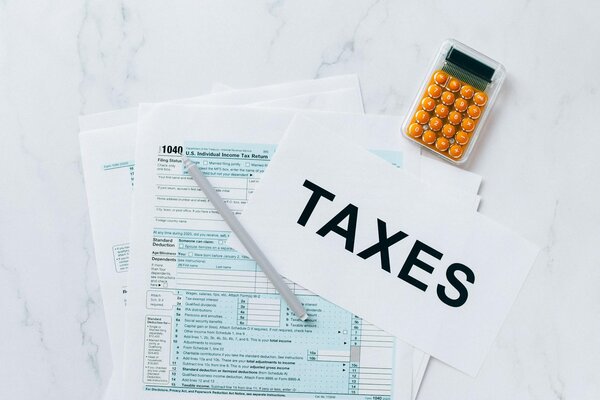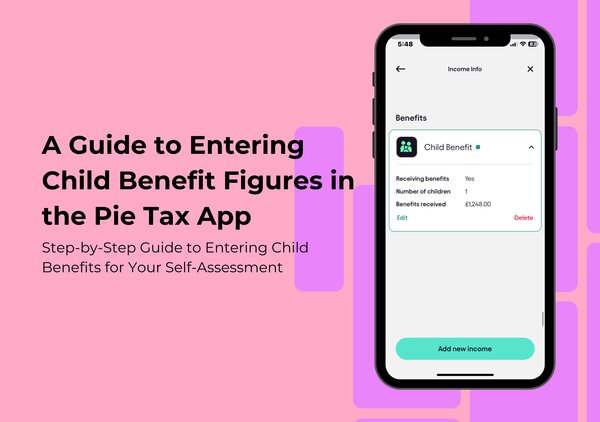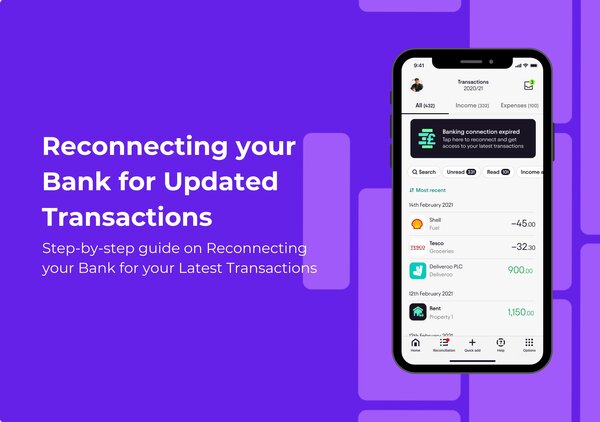Everything You Need to Know ...
Starting a business comes with exciting opportunities, and critical tax responsibilities. Running your own business or starting self employment means taking on new obligations, such as reporting income and paying taxes like income tax to HM Revenue and Customs (HMRC).
When you become self-employed, you enter the world of Self Assessment taxation.
This system has its own schedule and rules that you’ll need to master. New business owners must register for self assessment with HM Revenue and Customs (HMRC) if their annual income from self employment or as a sole trader exceeds the threshold. Missing deadlines can result in escalating penalties that hurt your new business finances.
The good news? These penalties are completely avoidable with a bit of knowledge and planning. Understanding the tax calendar is essential for financial planning and compliance. Knowing important dates and tax return deadlines is crucial to avoid penalties and stay on top of your obligations.
Pie tax makes managing your Self Assessment deadlines simple with automated reminders and deadline tracking. The app also helps business owners report income and manage their income tax and other taxes obligations. Or if you’re just here to get to grips with it all, let’s break it down!

What Are Self Assessment Tax Deadlines and Why Do They Matter?
Self Assessment is HMRC’s way of collecting tax from self-employed people. This includes sole traders, freelancers, and company directors. You must complete a tax return for each previous tax year in which you were self employed or a sole trader.
As a new business owner, you need to register, file returns and pay tax by specific dates. The main deadlines are 5th October (registration), 31st October (paper returns), and 31st January (online returns and payment).
Missing these triggers automatic penalties. Missing tax return deadlines can result in tax penalties, late payment penalties, and charged interest on any unpaid tax. These deadlines aren’t flexible, HMRC’s penalty system starts immediately when you’re late, even by one day.
For new business owners, these unexpected costs can be particularly painful. Income from self employment is not taxed at source, so it must be reported and paid through self assessment. Setting up simple calendar reminders can save you hundreds or even thousands of pounds.
When to Register and Pay: Your Tax Timeline
Your Self Assessment journey begins with registration. You must register by 5th October following the end of the UK tax year in which you started trading.
For example, if you started your business in June 2024, you need to register by 5th October 2025. After registering, you’ll receive a Unique Taxpayer Reference (UTR) within about 10 working days.
Don’t leave this until the last minute, without a UTR, you can’t file your tax return. The main payment deadline is 31st January following the previous tax year.
So for the 2024/25 tax year (ending 5th April 2025), you’ll need to pay by 31st January 2025. If your tax bill is over £1,000, you’ll usually need to make “payments on account”.
These advance payments toward your next tax bill are paid in two instalments: the first on 31st January and the second payment on 31st July. Many new business owners are caught off guard by this additional payment requirement, which is part of the payment on account system for those with a larger tax bill.

Tax Return Options: Paper, Online, and More
When it comes to completing your self assessment tax return, you have several options to suit your preferences and business needs.
The traditional route is the paper tax return, which must reach HMRC by 31 October following the end of the tax year. While some still prefer this method, it comes with an earlier deadline and the risk of postal delays or lost paperwork.
Increasingly, small business owners and the self employed are choosing to file their self assessment tax returns online. Submitting your tax return online gives you until 31 January to file, offers instant confirmation of receipt, and makes it easier to amend your return if you spot a mistake later.
Online tax returns also reduce paperwork and streamline the process, making it more convenient for busy business owners.
If you want extra support, you can use tax software or work with an accountant to complete your assessment tax return. These options can help ensure your tax return is accurate and submitted on time, reducing the risk of errors and late filing penalties.
Whichever method you choose, make sure you understand the relevant deadlines and requirements for your self assessment tax return to avoid unnecessary stress and penalties.
The Price of Being Late: Penalty Breakdown
Miss the filing deadline by just one day, and you’ll automatically receive a £100 fine. This applies even if you don’t owe any tax, a fact that surprises many first-timers.
If your return is three months late, daily penalties of £10 kick in, up to a maximum of £900. This means you could face penalties of £1,000 before HMRC has even calculated what tax you owe.
After six months, you’ll be charged either 5% of the tax due or £300, whichever is greater. This happens again at the 12-month mark.
Late payment carries separate penalties: 5% of unpaid tax after 30 days, another 5% after six months, and a further 5% after 12 months. Plus, interest gets charged on top of all this.
Repeated late filings or non-payment can trigger HMRC investigations, which may disrupt your business operations and financial stability.
I once forgot to file my first return as a freelancer, assuming I’d get a reminder. That £100 fine was a harsh lesson in taking tax deadlines seriously from the start.

Record Keeping and Accounting Essentials
Keeping accurate records is the foundation of a smooth self assessment tax return process. As a self employed person or small business owner, you need to track all sources of income, allowable expenses, and any capital gains throughout the tax year.
This information is essential for calculating your total taxable income and ensuring you pay the correct self assessment tax.
Good record-keeping means keeping receipts, invoices, bank statements, and details of any business expenses or purchases. HMRC requires you to keep these records for at least five years after the 31 January submission deadline for the relevant tax year, in case they need to check your assessment tax return.
Using accounting software can make this process much easier. It can automate expense tracking, generate reports, and help you calculate your tax liability accurately.
This not only helps you avoid late filing penalties and further penalties but also gives you a clearer picture of your business finances. For sole traders and small business owners, investing time in good record-keeping and using the right tools can save you money, reduce stress, and help you stay compliant with HMRC rules.
Online Tax Return Benefits for Modern Businesses
Filing your self assessment tax return online offers a range of advantages for today’s business owners. One of the biggest benefits is the extended deadline, online tax returns can be submitted up to 31 January, giving you extra time to gather information and complete a self assessment accurately.
The online system guides you through the process, prompting you for all the required details and performing basic checks to help reduce errors. You’ll receive instant confirmation from HMRC when your tax return is received, so you can be confident your assessment tax return is safely submitted.
For small business owners and sole traders, online tax returns make it easier to track your tax liability, manage payment on account, and claim any tax relief you’re entitled to.
With the move towards Making Tax Digital, submitting your tax return online is becoming the standard, offering a more efficient and streamlined way to meet your tax obligations.
Whether you need to complete a self assessment for the first time or you’re a seasoned business owner, filing your tax return online can save you time and help you stay on top of your tax affairs.
Reasonable Excuses and Getting Help
HMRC does accept "reasonable excuses" for missing deadlines. These typically include serious illness, bereavement, or technical failures with HMRC's systems.
What doesn't count? Forgetting, relying on someone else who let you down, or not having enough money to pay. These are all considered your responsibility.
If you receive a penalty notice but have a genuine reason, submit an appeal using form SA370 within 30 days. Include any evidence that supports your case.
If you're struggling to pay, contact HMRC before the deadline. They can often arrange payment plans through their Time to Pay service, which is much better than facing penalties.
Smart Tax Management for New Business Owners
Set aside money for tax throughout the year, about 25-30% of your profits is a good rule of thumb. This prevents cash flow problems when tax is due.
Keep your business records updated weekly rather than scrambling at year-end. Simple accounting software or even a well-organised spreadsheet can make this manageable. Remember, business insurance is an allowable expense that can reduce your taxable income.
Consider filing your tax return well before the deadline,many business owners aim for November or December. This gives you time to prepare for the payment and avoids the January rush. For first time filers, submitting your tax return early helps you understand the process and avoid errors.
Take advantage of HMRC’s free resources, including webinars for new business owners. Their Business Tax Account online service can also help you stay organised. If you are VAT registered or need to file a partnership tax return, you may have additional deadlines and requirements to consider.

Avoiding Common Tax Mistakes
Navigating self assessment tax returns can be straightforward if you avoid some common pitfalls. One of the most frequent mistakes is missing the tax return deadline, which leads to an automatic late filing penalty, even if you don’t owe any tax.
Another common error is misreporting your income or forgetting to include all sources of taxable income, which can result in an incorrect tax bill and further penalties.
Many business owners also overlook allowable expenses or fail to claim available tax reliefs, meaning they end up paying more tax than necessary. To avoid these issues, keep detailed records, understand what counts as taxable income, and make sure you’re aware of all the deductions you can claim.
Using accounting software or consulting with an accountant can help you complete a self assessment accurately and on time. Stay informed about changes in tax rules, especially with the ongoing rollout of Making Tax Digital, to ensure you’re meeting your legal obligations.
By being proactive and organised, you can pay the correct amount of tax owed, avoid late filing, and keep your business running smoothly.
Final Thoughts
Self Assessment doesn't need to be stressful if you understand the deadlines and plan accordingly. The system may seem complicated at first, but it follows a predictable annual pattern.
New business owners who stay organised with their tax obligations tend to develop better financial habits overall. Treating tax as a regular part of your business routine removes much of the anxiety.
Remember that HMRC's penalty system is designed to encourage compliance rather than to punish. They often show leniency to those who communicate proactively about difficulties.
Pie tax: Simplifying Tax Deadlines
Starting a new business is challenging enough without worrying about tax deadlines and penalties. The UK's first personal tax app, Pie tax, tracks all your tax deadlines automatically.
We send timely reminders so you never face late filing penalties again. Our app connects directly to your bank account, making record-keeping effortless.
We calculate your tax liability in real-time throughout the year. This helps you set aside the right amount of money and eliminates payment surprises.
Want to see how we can take the stress out of Self Assessment? Visit our website to learn how Pie tax works for new business owners.











